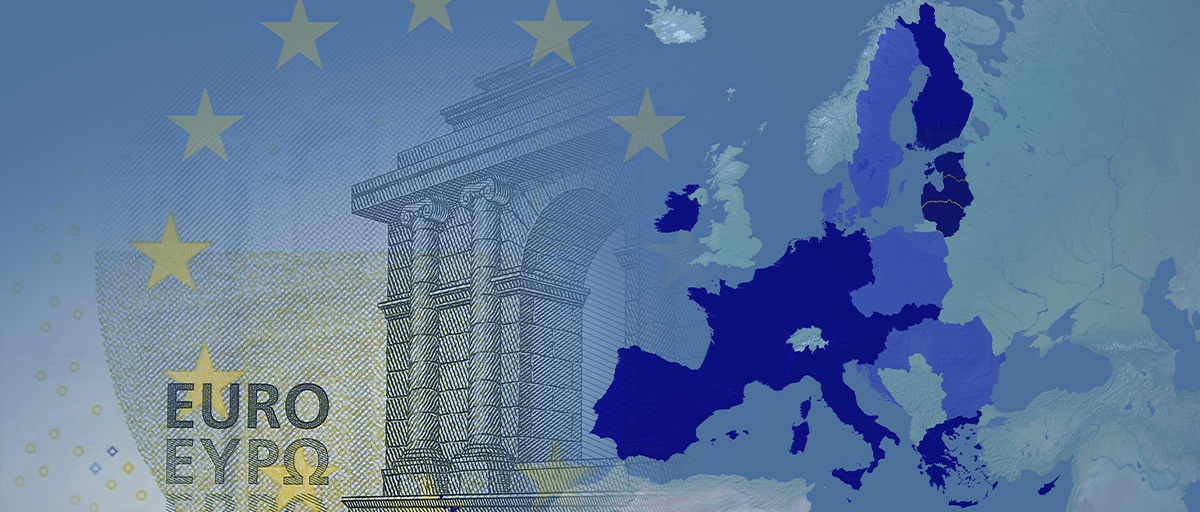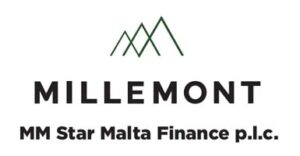Mike Pyle, Global Chief Investment Strategist at the BlackRock Investment Institute, together with Elsa Bartsch, Head of Macro Research, and Scott Thiel, Chief Fixed Income Strategist also both part of the BlackRock Investment Institute, share their insights on global economy, markets and geopolitics. Their views are theirs alone and are not intended to be construed as investment advice.
Europe’s policy response to the virus shock was slow to get going – but an impressive array of fiscal and monetary measures is getting into place to bridge the economy through the shock. The euro area has also had relative success in tamping virus growth, positioning it well for reopening its economy. We see the two factors as supporting the region’s economy and markets in coming months.

Sources: BlackRock Investment Institute, with data from Google, June 2020. Notes: The chart shows the percentage change in mobility (seven-day moving average) relative to the median level between Jan. 3 and Feb. 6, 2020. The yellow line is a simple average of Germany, France and Italy. The lines start on Feb. 24.
Lockdowns in Europe started relatively early and caused mobility to plummet. Google data – which use mobile phone location data to measure the change in visits to stores and workplaces as well as use of public transit – show average mobility levels across Germany, France and Italy plunging more than 70% below pre-virus levels. See the yellow line in the chart. The sharp drop was a huge drag for activity in the short term, but helped curb the virus spread more effectively. Mobility has rebounded quickly and is now on par with the level in the U.S. This bodes well for a pickup in activity, especially as it comes with a lower risk of infection resurgence, in our view. As a result, we could see the pace of recovery in the second half outpacing other regions, including the U.S.
After an initially slow start, the euro area’s policy response to the virus shock is picking up pace, with additional spending measures announced recently by Germany and France. Combined with additional monetary support, the size of stimulus is broadly sufficient to match the income shortfall on a euro area level, our analysis shows. The European Central Bank (ECB) has launched new and more flexible quantitative easing: the pandemic emergency purchase program (PEPP). Its targeted longer-term refinancing operations (TLTRO) scheme holds the promise to provide support to the private sector via cheap loans to banks. The ECB has also made clear that it stands ready to do more in monetary policy stimulus if the inflation outlook is still not showing sufficient progress toward price stability in September.
In addition, we see the new 750-billion-euro European recovery plan as a crucial turning point for Europe’s economy and financial markets. The bulk of the proceeds will be distributed as grants – over and above offering cheap financing to ensure the flow of credit to virus-hit economies through new European Stability Mechanism (ESM) credit lines. It will also for the first time create a jointly issued European “safe” asset of a meaningful size. Such pan-European debt would start to rival the total volume of German federal government debt outstanding, after including the almost 300 billion euros of ESM debt outstanding. To be sure, this is not a “Hamiltonian moment” for Europe – harkening back to the U.S. federal government assuming the debts that states incurred in the War of Independence. It’s about newly issued debt, and more work is needed to move the euro area toward a fully-fledged fiscal union.
Policy implementation risks remain. And the risk of a no-deal Brexit looms. Yet the BlackRock geopolitical risk indicator already shows elevated market attention to the European fragmentation risk, suggesting markets may have priced in at least part of that risk.
Bottom line: We are seeing many reasons to be optimistic about the euro area in the second half of 2020, including the ramped-up policy response and effective public health measures. The sum total of the euro area’s policy actions looks impressive – and they come on top of relatively large automatic stabilizers such as generous welfare benefits. As a result we maintain our overweight in European peripheral government bonds and are considering an upgrade to European equities.
Market Updates

Past performance is not a reliable indicator of current or future results. It is not possible to invest directly in an index. Sources: BlackRock Investment Institute, with data from Refinitiv Datastream, June 2020. Notes: The two ends of the bars show the lowest and highest returns versus the end of 2019, and the dots represent year-to-date returns. Emerging market (EM), high yield and global corporate investment grade (IG) returns are denominated in U.S. dollars, and the rest in local currencies. Indexes or prices used are: spot Brent crude, MSCI USA Index, the ICE U.S. Dollar Index (DXY), MSCI Europe Index, Bank of America Merrill Lynch Global Broad Corporate Index, Bank of America Merrill Lynch Global High Yield Index, Datastream 10-year benchmark government bond (U.S. , German and Italy), MSCI Emerging Markets Index, spot gold and J.P. Morgan EMBI index.
Market backdrop
Measures to contain the virus are gradually being eased in many developed economies. May’s data suggested the worst of the contraction may be behind us, but we see a bumpy restart in coming months. We are tracking the interplay of containment measures and mobility changes on activity as economies have started to reopen. The unprecedented policy response has boosted markets, leaving a potential resurgence of infections and policy implementation as key risks. U.S. Congress is headed for a fiscal cliff as jobless benefits, state support and payroll protection measures are expiring soon.
Week Ahead
- Monday: Euro area consumer confidence flash
- Tuesday: U.S., UK and euro area flash PMIs
- Wednesday: German IFO business survey
A spate of business and consumer sentiment data across the U.S. and Europe could help markets assess signs of a rebound in activity. The pace of the activity restart depends on how successful countries are in suppressing the virus. We see a greater danger of renewed outbreaks in the U.S., UK and Canada than in Germany and Japan, based on our research on the relationship between mobility and virus infection rates.
BlackRock’s Key risks & Disclaimers:
This material is not intended to be relied upon as a forecast, research or investment advice, and is not a recommendation, offer or solicitation to buy or sell any securities or to adopt any investment strategy. The opinions expressed are as of June 22nd, 2020 and may change. The information and opinions are derived from proprietary and non-proprietary sources deemed by BlackRock to be reliable, are not necessarily all-inclusive and are not guaranteed as to accuracy. As such, no warranty of accuracy or reliability is given and no responsibility arising in any other way for errors and omissions (including responsibility to any person by reason of negligence) is accepted by BlackRock, its officers, employees or agents. This material may contain ’forward looking’ information that is not purely historical in nature. Such information may include, among other things, projections and forecasts. There is no guarantee that any forecasts made will come to pass. Reliance upon information in this material is at the sole discretion of the reader.
The information provided here is neither tax nor legal advice. Investors should speak to their tax professional for specific information regarding their tax situation. Investment involves risk including possible loss of principal. International investing involves risks, including risks related to foreign currency, limited liquidity, less government regulation, and the possibility of substantial volatility due to adverse political, economic or other developments. These risks are often heightened for investments in emerging/developing markets or smaller capital markets.
Issued by BlackRock Investment Management (UK) Limited, authorized and regulated by the Financial Conduct Authority. Registered office: 12 Throgmorton Avenue, London, EC2N 2DL.
MeDirect Disclaimers:
This information has been accurately reproduced, as received from BlackRock Investment Management (UK) Limited. No information has been omitted which would render the reproduced information inaccurate or misleading. This information is being distributed by MeDirect Bank (Malta) plc to its customers. The information contained in this document is for general information purposes only and is not intended to provide legal or other professional advice nor does it commit MeDirect Bank (Malta) plc to any obligation whatsoever. The information available in this document is not intended to be a suggestion, recommendation or solicitation to buy, hold or sell, any securities and is not guaranteed as to accuracy or completeness.
The financial instruments discussed in the document may not be suitable for all investors and investors must make their own informed decisions and seek their own advice regarding the appropriateness of investing in financial instruments or implementing strategies discussed herein.
If you invest in this product you may lose some or all of the money you invest. The value of your investment may go down as well as up. A commission or sales fee may be charged at the time of the initial purchase for an investment and may be deducted from the invested amount therefore lowering the size of your investment. Any income you get from this investment may go down as well as up. This product may be affected by changes in currency exchange rate movements thereby affecting your investment return therefrom. The performance figures quoted refer to the past and past performance is not a guarantee of future performance or a reliable guide to future performance. Any decision to invest in a mutual fund should always be based upon the details contained in the Prospectus and Key Investor Information Document (KIID), which may be obtained from MeDirect Bank (Malta) plc.





